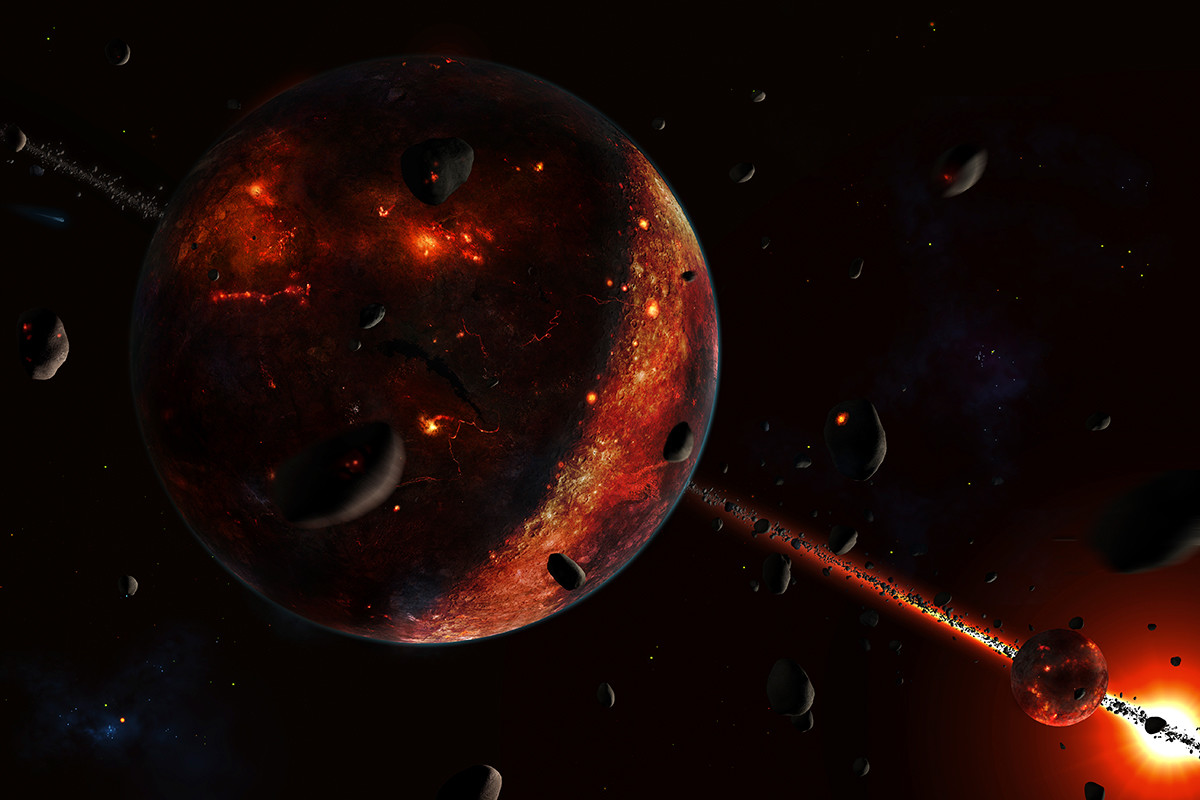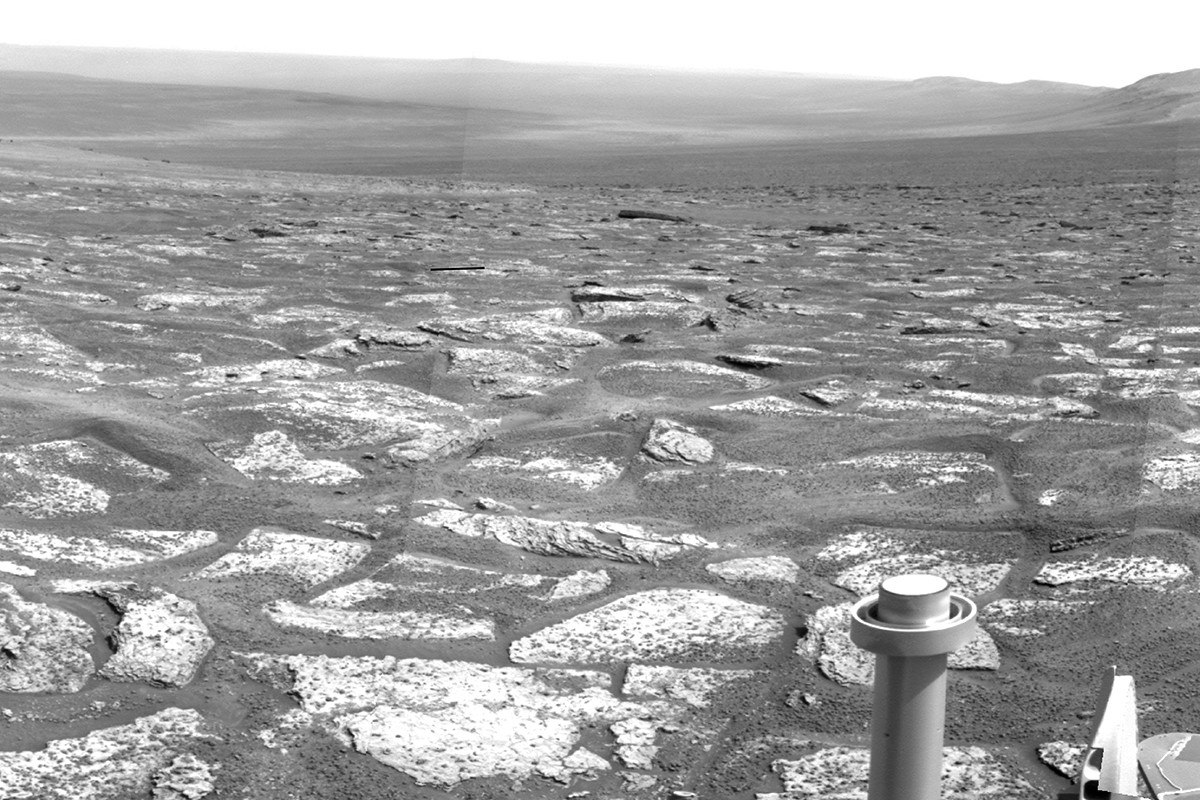The cause of the "one-day ocean" on Mars could become asteroids

Image: Stocktrek / Getty
Mars is still a mystery to scientists. There is no consensus about what the Red Planet was in the past. Someone thinks that in antiquity Mars was warm and humid , someone else - that dry and cold , with short-term moisture, so to speak. At the same time, the ocean in the distant past of the planet (and practically no one doubts its existence) could have arisen during the bombardment of Mars by asteroids. In this case, the ocean existed for a very short time, says Tim Parker from NASA's Jet Propulsion Laboratory.
4 billion years ago, not only Mars, but also the other planets of the Solar System were actively bombarded by asteroids and comets. Perhaps these celestial bodies brought water with them and warmed up the planet. As a result, a whole ocean of liquid water appeared, which existed for a very short time due to the thin atmosphere of Mars. Part of the ocean just evaporated, and part - frozen.

This region, scientists believe, was clearly under water for a long time (Photo: NASA / JPL-Caltech)
')
Tim Parker believes that the ocean of Mars could have existed for several hundred million years, not more. This hypothesis clarifies many modern features of the atmosphere of Mars. If we accept that everything was as Parker says, we can assume that the atmosphere of the Red Planet was always sparse, and not try to invent a reason for which the atmosphere for some time lost some mass and became less dense.
Opportunity, the rover that has been studying Mars for more than ten years, has repeatedly found valleys that were clearly formed by the action of water. The morphology and composition of rocks in such regions are similar to some places on Earth, where large quantities of water were actively evaporating and occurring. Evaporation may be indicated by polygonal cracks, also discovered by Opportunity (photo above).
Most modern models of the evolution of Mars suggest that in ancient times the atmosphere of the planet was more dense and humid than it is now, which led to the possibility of the existence of liquid water on the surface. But here it is also necessary to explain where in this case a part of this dense and moist atmosphere has disappeared. And if you accept the hypothesis of Parker - everything falls into place.
In order to confirm or disprove this hypothesis, it is necessary to further study the surface of Mars, the features of the landscape and the composition of the rocks of the planet.
Source: https://habr.com/ru/post/368531/
All Articles